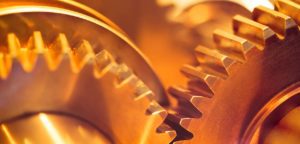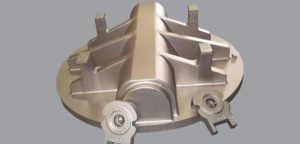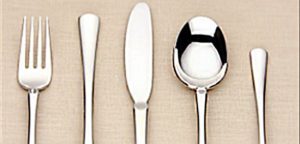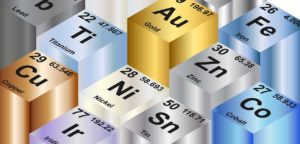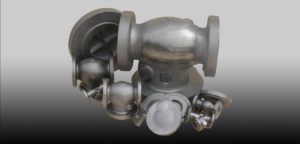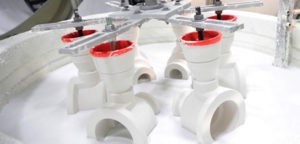Blog Archives
The “Metals of Antiquity” were the only known metals until the 13th century – and there were seven of them (gold, copper, silver, lead, tin, iron, and mercury). That number has since exploded to a current count of 91. Copper is one of the earliest identified metals. There is evidence copper was discovered around 4000 B.C.,…
Read MoreGrade Aluminum Bronze Alloys Description A family of alloys containing aluminum as the principle alloying element, offering strength similar to medium carbon steel and possessing excellent corrosion resistance. Properties – Why select this material As aluminum content increases, hardness and tensile strength increase. The lower the aluminum content, the better the corrosion resistance. Applications –…
Read MoreWhat Is Stainless Steel? It’s everywhere. Probably more than you notice. It’s a key material in food preparation and food processing equipment. When you are eating, that fork in your hand is probably made of it. It is likely to be the material your sink is made of. And if you watch HGTV you know that no kitchen is…
Read MoreGrade Austenitic Stainless Steels. Description Austenitic Stainless Steel Elements: Of all elements added to the basic alloy of chromium and iron, nickel is the most important. It not only improves corrosion resistance but also changes the alloy’s structure and mechanical properties. Austenitic Stainless Steel Structure: As nickel is added in increasing amounts to a ferritic…
Read MoreGrade MTEK N-7M and N-12MV (N30007 / Similar to Hastelloy® B Mod) severe corrosion and heat resistant alloy. Description Nickel-Moly alloys. Properties – Why select this material Excellent strength and ductility at ambient and elevated temperatures. Resistant to oxidizing conditions up to 1400°F / 760°C and up to substantially higher temperatures in reducing conditions.…
Read MoreThere are many benefits of using the sand casting process versus traditional manufacturing processes. If you asked multiple metal casting suppliers the main benefit, many would say the cost-effectiveness when internal passageways are required. How Does A Metal Casting Supplier Produce A Finished Component with These Passageways? The answer is simple – by using core…
Read MoreOconomowoc, WI – Mike Williams, Chairman of the Wisconsin Committee for Employer Support of the Guard and Reserve Committee (ESGR), has announced Jamie Schindel, Machine Shop Supervisor of MetalTek International, was presented with a Patriot Award by ESGR representative Bill Rheingans, Area 2 Chair in recognition of extraordinary support of one of their employees serving…
Read MoreThink of a test that you face in metal component design or application. Here are some examples of where leveraging the advantages of investment casting has helped solve an application challenge. Maybe you will see a problem you are working to resolve. Minimizing Casting Upgrades or Additional Processing While all applications are expected to perform,…
Read MoreThe Effect of Temperature on Corrosion of Metals As the performance demands on metals tend to increase as temperature increases, so do the types of corrosive attacks to which the metal is likely to be subjected. When we think of significant industries and applications that are most likely to face the combined effects of high…
Read MoreOverview Every material selection decision includes tradeoffs. Performance can come at a price. But there is little sense in paying for capabilities that are not needed. The following suggests a framework for selecting one of a family of wear-resistant materials from another. Comparisons Cost Cost is rarely ignored, so it is helpful to compare certain…
Read More
